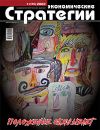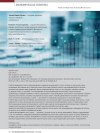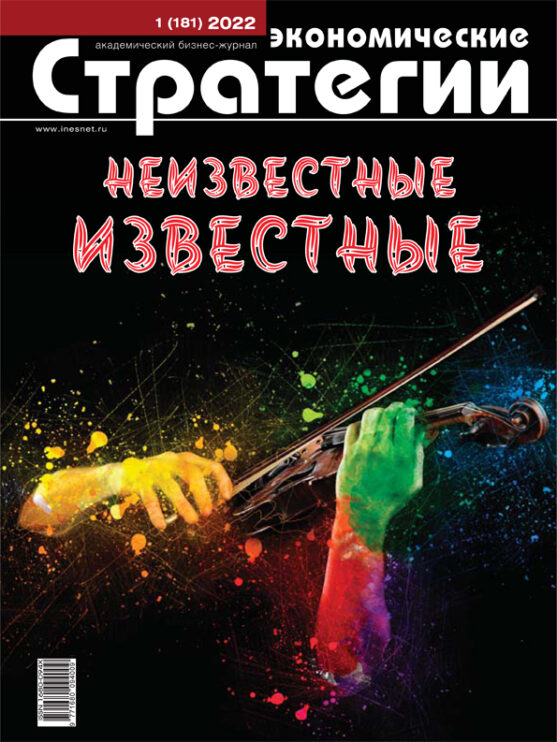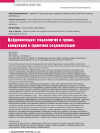Phenomena of Quantum Economy
DOI: https://doi.org/10.33917/es-5.185.2022.30-41
The paper undertakes to analyse the changes in the economic agent which it is subject to when described from the perspective
of different worldviews. The mechanistic, electrodynamic and relativistic quantum worldviews suggest different interpretations of the properties of the object, hence describe economic objects different in nature. Reliance on physicalist methods makes it possible to reveal an economic agent displaying solidarity and to outline its preconditions. The goal of this research is reconsidering the object of economics and revealing its new properties. The first task is to describe the economic agent in mechanistic terms, the second task is to add to it the properties that are drawn from quantum mechanics.
The paper looks for analogies and metaphors of such phenomena as tunnel effect and duality of microparticles. It also suggests
a system of institutional organization for regulating demand for different categories of goods.
The theory of institutions is interpreted through the analogies of the electrodynamic worldview. The principles of behavioral economics are presented in terms of the quantum-relative worldview.
The article reveals a new production factor that allows the agent to exchange the labour performed in the system of informal institutions for its analogies in the formal system. It is inferred that the peculiarities of behaviour are formed by institutions and divide agents of demand into groups. The metaphors of quantum-field experiments are revealed to explain the mechanisms of influence on these groups depending on their preferences. The paper explores the agent of demand — the purchaser — consisting of multiple households. Economic analogies are searched in the process of interpreting the law of demand and supply.
References:
1. Mirowski P. More Heat than Light: Economics as Social Physics, Physics as Nature’s Economics. New York: Cambridge University Press, 1989, p. 3.
2. Stepin V.S. Teoreticheskoe znanie [Theoretical Knowledge]. Moscow, Progress-Traditsiya, 2000, 744 p.
3. Churilin M.Yu. Vliyanie progressa v estestvennykh naukakh na osmyslenie ponyatiya homo economicus [Influence of Progress in Sciences on the Understanding of the Notion of Homo Economicus]. Ekonomicheskie strategii, 2018, no 1, pp. 198–207.
4. Avtonomov V.S. Model’ cheloveka v ekonomicheskoi nauke [Human Model in Economics]. Saint Petersburg, Ekonomicheskaya shkola, 1998, p. 62. (Seriya: Eticheskaya ekonomiya: Issledovaniya po etike, kul’ture i filosofii khozyaistva.)
5. Fridmen M. Metodologiya pozitivnoi ekonomicheskoi nauki [Methodology of Positive Economics]. THESIS, 1994, vyp. 4, p. 36.
6. Grebnev L.S. Chelovek v ekonomike: teoretiko-metodologicheskii analiz [Human in Economics: Theoretical and Methodological Analysis]. Natsional’nyi issledovatel’skii universitet “Vysshaya shkola ekonomiki”, p. 22, available at: https://www.hse.ru/data/xf/2013/08/20/1291716033/dissertation.pdf.
7. Inglkhart R. Kul’turnaya evolyutsiya. Kak izmenyayutsya chelovecheskie motivatsii i kak eto menyaet mir [Cultural Evolution. How Human Motivations are Changing and How it is Changing the World]. Moscow, Mysl’, 2018, p. 21.





